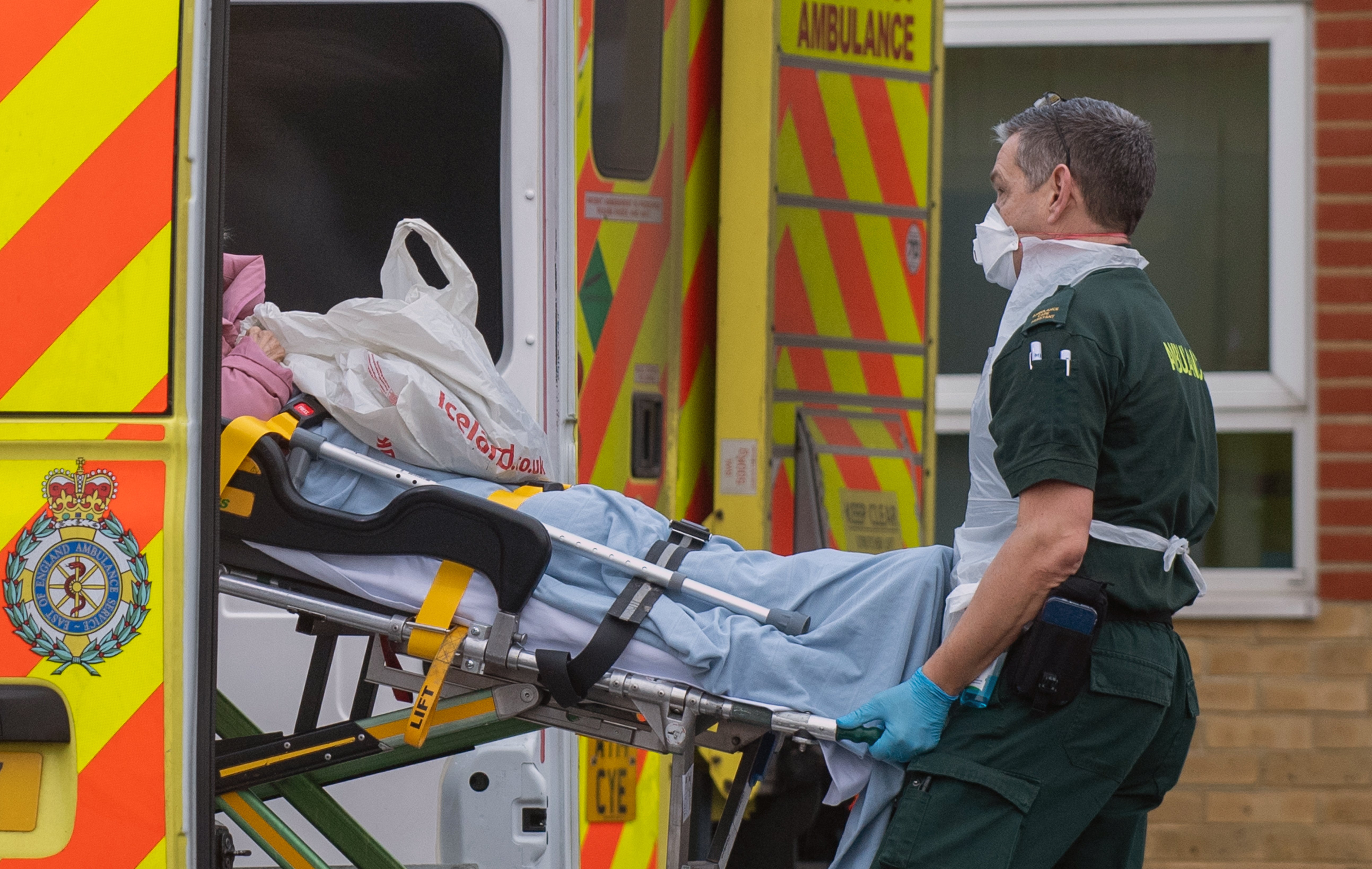Number of NHS trusts to declare critical incidents rises amid Covid pressures
The Transport Secretary said the Government did not want hospitals to be ‘overrun’ but defended the decision to stick with Plan B measures.

Your support helps us to tell the story
From reproductive rights to climate change to Big Tech, The Independent is on the ground when the story is developing. Whether it's investigating the financials of Elon Musk's pro-Trump PAC or producing our latest documentary, 'The A Word', which shines a light on the American women fighting for reproductive rights, we know how important it is to parse out the facts from the messaging.
At such a critical moment in US history, we need reporters on the ground. Your donation allows us to keep sending journalists to speak to both sides of the story.
The Independent is trusted by Americans across the entire political spectrum. And unlike many other quality news outlets, we choose not to lock Americans out of our reporting and analysis with paywalls. We believe quality journalism should be available to everyone, paid for by those who can afford it.
Your support makes all the difference.The number of hospital trusts on the highest level of alert has increased to 24, as health leaders warned the NHS needs support to “get through this extremely challenging period”.
Transport Secretary Grant Shapps said a further four hospital trusts, taking the number up from 20, had declared critical incidents as the health service confronts a wave of Omicron infections.
He told Sky News it was “not entirely unusual for hospitals to go critical over the winter” but accepted that there are “very real pressures”.
Mr Shapps’ figure was more specific than that given on Wednesday by the Prime Minister’s official spokesman, who said more than 20 NHS trusts had declared a critical incident – the highest level of alert which means there are fears priority services cannot be safely delivered.
But the No 10 official insisted that the declaration was “not a good indicator” of the demands the health service was under.
With the NHS facing staffing and capacity struggles, Mr Shapps defended the Government’s decision to not go further than Plan B restrictions for England.
“We are always trying to find the right compromise on going too tight on restrictions – lockdowns, let’s face it, they have a lot of costs connected,” he added.
“Then again, not wanting our hospitals to be overrun. This is where I think Plan B has been shown to be the right approach so far.”
It comes as Cabinet ministers this week reportedly discussed denying entry to large venues and the right to quarantine-free travel to those who refuse to get a booster jab.
The Times said ministers on the Government’s Covid-O committee discussed plans to make third jabs a mandatory requirement for Covid passes as it looks to incentivise the remaining eligible adults to take up the offer of another vaccination dose.
Implementation of the plans are likely to be delayed until at least next month to give people whose boosters were delayed because they contracted the virus time to get jabbed, the newspaper said, but the move could put Boris Johnson on another collision course with rebel Tory backbenchers.
Meanwhile, Government figures showed that a total of 17,276 people were in hospital in the UK with Covid-19 as of January 4, up 58% week-on-week.
The figure is the highest number since February 19 last year, although far below the peak of almost 40,000 in January 2021.
It comes as new data from the Zoe Covid app study suggested cases are dropping among people aged 18 to 35 but rising in older age groups, including the over-75s.
It’s worrying to see cases increasing in the over-75 age group
Dr Claire Steves, from King’s College London, which runs the app, said: “It’s good news that the number of daily new cases has slowed for now.
“Our data shows that this slowdown is being driven by cases falling in London and in younger age groups.
“However, it’s worrying to see cases increasing in the over-75 age group. This is the group we need to protect as they are the most likely to be hospitalised as a result of a Covid infection.
“It’s too early to know if cases have truly peaked in London, as schools are yet to reopen after the holidays.”
Elsewhere, Matthew Taylor, chief executive of the NHS Confederation, said it was “clear that we are facing a staffing crisis in the NHS”, with around 10% of workers in self-isolation or on sick leave.
He called for the Government to go further than the current Plan B measures, which the Cabinet on Wednesday agreed to leave in place until the next review on January 26.
If the Prime Minister wants them to continue after this date, he will need to win a fresh Commons vote.
Mr Taylor told the Guardian: “The Government now needs to do all it can to mobilise more staff and other resources for the NHS to get through this extremely challenging period.”
He said an announcement that 100,000 critical workers would be given daily lateral flow tests to help keep essential services open did not go far enough.
The former Downing Street adviser backed calls for the isolation period to be cut to five days from the current seven, while suggesting that medical students be deployed on wards in the short-term to “cover rota gaps”.
A further 194,747 lab-confirmed Covid-19 cases had been recorded in the UK as of 9am on Wednesday, while 334 more deaths were recorded – although this figure included a backlog of hospital data from England since January 1.
An estimated 3.7 million people in the UK had Covid-19 in the week ending December 31, up from 2.3 million in the week to December 23 and the highest number since comparable figures began in autumn 2020, the Office for National Statistics said.